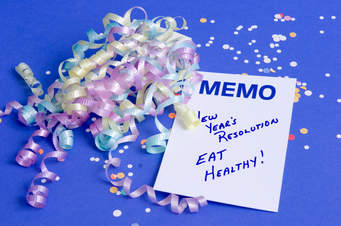Nicole Wegweiser Psychotherapy
|
I’ve always struggled with the idea of creating New Year’s resolutions. It has always felt like a lot of pressure. And then once I figured out what my New Year’s resolution(s) were, somehow they did not happen. As a therapist and fitness instructor, I see many motivated good intentioned people come to therapy and the gym in January, and by February they are gone. So often we set unrealistic goals for themselves that are unachievable, unmanageable, unattainable, or unsustainable.
According to the dictionary, the definition of resolution is “a firm decision to do or not to do something” or “the act of solving a problem, dispute, or contentious matter.” Both of these definitions feel hard for me. The first one, “a firm decision to do or not to do something” can feel both rigid and definitive. What if one decides to try to do something and then realizes that it doesn’t work for him or her? What if a person has an intention to do things differently but for whatever reason isn’t able to follow through completely? Did he or she fail? Somehow it feels that this New Year’s Resolution has the very same possibility of someone feeling as though he or she is a failure when they can’t maintain whatever diet, exercise regimen, etc. that they have set for themselves. And the second definition “the act of solving a problem, dispute, or contentious matter” is great if there’s a problem in one’s life that they would like to acknowledge or address and change. But what if someone doesn’t feel that they have something they need or want to change. Or what if they have a problem that is unsolvable? Maybe acceptance is the answer that will bring resolve. Both of these points bring me to the idea that instead of setting a New Year’s Resolution that most likely we are bound to fail at, let’s set a new year’s intention. In fact, the New Year is not the only time we should be setting intentions for ourselves, we can do this daily. As a former yoga instructor and yoga lover, I always liked the part in the beginning of class in which we set an intention for our practice, and then at the end of class we came back and revisited it. It’s something that we can do before we eat a meal; spend time with a friend or family, or when we wake up in the morning and go to sleep at night. Being intentional allows us to be conscious not only of our choices, but our experiences, and allows us the opportunity to reflect on our experiences with awareness and presence. Instead of “New Year, New You” I challenge you to think “New Year, You.” Let’s be honest here. Just because the year has changed, does not mean that you have changed. And even if you are changing your habits, or setting the intention to change your habits, you still are you. It’s the consciousness, awareness, and intentions of improving oneself that I suggest we all focus on. Otherwise we have the probably chance of disappointing ourselves once again, feeling like a failure, and giving up altogether. Another idea I recommend is that if your goal is to lose weight, for example, instead of saying “my new years’ resolution is to lose 50 pounds,” say “my intention this year is to eat healthier and exercise more.” That way, even if you don’t lose the 50 pounds you intended to, but you did make an effort to eat healthier and exercise more, you are still successful. So, in closing…set intentions, rather than resolutions for yourself, and if you are going to set goals, make sure they are achievable and sustainable. This idea of self-improvement and reflection can be a wonderful thing if we feel successful at it. And if we set ourselves up for failure, it’s just another thing to feel bad about in 2017.
1 Comment
|
AuthorNicole Wegweiser, LCSW Archives
March 2020
Categories |

 RSS Feed
RSS Feed